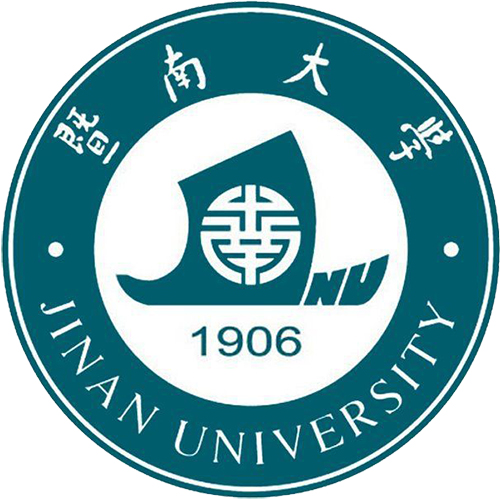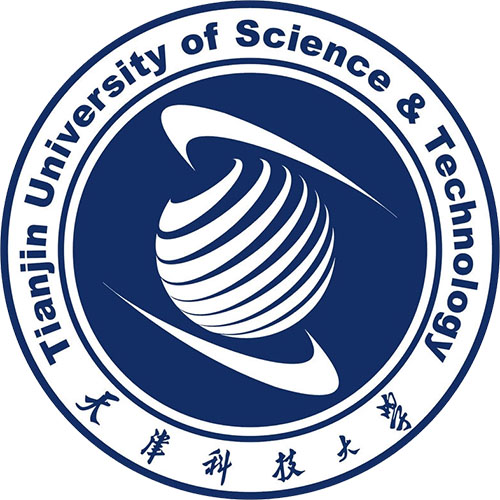
 Introduction
Introduction About the Program
About the ProgramObjectives:
To fulfill the needs of social and economic development, this program is designed to train specialists armed with sound basic theory and skills in food testing and analysis, environmental science and food science. Students registered for and trained under this program will become familiar with international and domestic food quality and safety systems and regulation systems, and to become qualified for jobs after graduation in testing, control, supervision, law enforcement and management related to food quality and food safety.
Overview:
Food quality and safety science is the application of biological and physical sciences to food systems. Interest in food quality and safety has grown in recent years because of the increasing awareness of the vital role of food in the health, well-being, and economic status of individuals and nations. Professional food scientists ensure that an acceptable, nutritious, safe and appealing selection of foods is available. They also play a major role in increasing the supply of foods urgently needed to provide an adequate diet for a rapidly growing world population.
Research in food science is concerned with the development of fundamental information about the chemical, physical, and biological properties and interactions of foods and food components. This information is necessary for developing optimum processes and conditions to enhance the nutritive value, safety, and quality of foods. Food technology involves the integrated application of several disciplines (chemistry, animal and plant biology, biochemistry & biotechnology, nutrition, physiology, microbiology, and engineering) to the processing and manufacturing of foods.
The International School offers outstanding educational and research opportunities for advanced studies in food quality and safety program. Graduate studies in this program at the International School produce graduates who are well-prepared to become the research leaders, innovators, and technical experts essential for meeting the growing needs of governments, industries, and various institutions. An excellent selection of courses in basic and applied sciences; and modern, well-equipped laboratories combine to make the International school’s graduate program in food science among the best in the world.
Degree Requirements: All food science and technology students should have competency in chemistry, physics, biochemistry, microbiology, statistics, and food processing. The requirements for minors are set by the fields concerned. Minor fields may include biochemistry, nutrition, chemistry, microbiology, animal science, agricultural or chemical engineering, environmental toxicology, marketing, economics, fruit and vegetable science, international development, physiology, statistics, or some other field that is relevant to food science.
Students under this program should: 1. Have a good command of the basic theory of food science and experimental methodology and the basic knowledge and theory of such food safety related fields as chemistry, biology, production of animal and plant foods, food hygienic, and food biotechnology; 2. Be able to conduct analysis, quality evaluation and testing of food enterprises, markets and quality control centers; 3. Be familiar with food regulations and standards and be well-informed of the latest developments in the field of food quality and safety at home and abroad; and 4. Be competent in evaluating such organizations as food quality control, food hygiene supervision and international trade.
Major Courses:
Food Toxicology, Food Microbiology, Food Chemistry, Food Analysis, Inorganic Chemistry, Organic Chemistry, Analytical Chemistry, Physical Chemistry, Introduction to Food Technology, Instrumental Food Analysis, Quarantine of Animals & Plants, Food Standards and Regulations.
Degree Awarded:
Bachelor's Degree in Engineering
 About Jinan University
About Jinan University
Jinan University, established in 1906, is a comprehensive university under the joint leadership of the Overseas Chinese Affairs Office of the State Council and the Education Ministry of P. R. China. The university is one of the top 100 national key universities in China. Adhering to the principle of "Oriented to students from overseas, Hong Kong, Macao and Taiwan", Jinan University now has over 23,000 full time students, including 10,609 students from Hong Kong, Macao, Taiwan, and foreign countries, which comprises the largest number of overseas students in China.
Known as a paramount academy for Overseas Chinese, Jinan University has always dedicated itself to the education of Chinese language and culture for overseas students. The College of Chinese Language and Culture of Jinan University (CCLC) has always dedicated itself to the education of Chinese language and culture as well as pre-university education for overseas students since its founding and sanctification in June of 1993 by the Overseas Chinese Affairs Office of the State Council and the Education Ministry of the P. R. China. CCLC is one of the colleges of Jinan University and originated from three institutes-Guangzhou Overseas Chinese School (established in 1953), Department of Teaching Chinese as a 2L of Jinan University (established in 1985), and the Department of Pre-university (established in 1925).
CCLC was conferred as the "National Base of Teaching Chinese as a Foreign Language", as well as the "Overseas Chinese Education Base". CCLC is also one of the ten key institutions that facilitate Chinese teaching in neighboring countries. CCLC is one of the few HSK (Chinese Proficiency Test) centers, BCT (Business Chinese Test) centers, and centers of Test of Chinese Proficiency for Japanese. The major of Teaching Chinese as a 2L at CCLC was conferred the title of "Famous Brand of Guangdong Province".
Since CCLC's founding, there have been over 50,000 international students studying or training here. In 2008, there were altogether 3,678 students at different levels in CCLC, of which 192 were graduate students, 179 undergraduates from Mainland China, 317 undergraduates from foreign countries, 956 foreignstudents for long-term Chinese learning, 679 international students in short-term training courses, 586 foreign adults students in CCLC'soversea teaching location, and 769 pre-university international students from HongKong, Macao, Taiwan, and foreign countries.
The college consists of the Department of Teaching Chinese as a Second or Foreign Language, the Department of Overseas Chinese Education, the Department of Applied Linguistics, Pre-University Department, Correspondence Course Department, Overseas Chinese Education Researching Institute, Overseas Chinese Researching Center, and Internet & Educational Technology Center. Currently, there are 204 staff members in the college, among which there are 28 senior professors and associate professors and 55 lecturers. Twenty one of the staff hold doctorate degrees, and 41 hold master degrees. There are also 14 doctorate and master candidates’ supervisors.
CCLC offers multi-form, multi-level courses in various forms in college and the overseas teaching locations, such as Singapore, the USA, Indonesia, Thailand, etc. CCLC has both degree and non-degree programs. There are the doctoral and master degree programs majoring in Chinese Linguistics in addition to Linguistics & Applied Linguistics, and the undergraduate programs majoring in Chinese Language as well as Overseas Chinese Education. The doctoral and master degree programs enroll full-time and part-time students from domestic China and abroad, while the undergraduate programs enroll international high school graduates and fosters them as the teachers or administrator talents in the occupations of Overseas Chinese Education, teaching affairs administration, business Chinese, etc. The non-degree programs include Rudimentary Chinese, Intermediate Chinese, Advanced Chinese, Crash Chinese, Business Chinese, Cantonese, Teacher's Training, Short-term Chinese Training, and Winter or Summer Vacation Camps. Besides these, there are pre-university programs established for the Grade 11 or above graduate. Most graduates of pre-university programs can upgrade directly into undergraduate programs of Jinan University.
Located in Guangzhou City, CCLC covers an area of 147,129 squares meters. Guangzhou City is a famous metropolis in the South of China, neighboring Hong Kong and Macao. The city is prosperous and has good communications. CCLC is in the downtown of the city, and it has easy access to metro and intercity commuting systems. Lying at the foot of a small mountain, CCLC boasts large patches of greenery, fresh air, sports grounds and convenient entertainment and living facilities. With the integration of a sound academic atmosphere of Chinese culture and an international, diversified cultural environment, CCLC is the ideal place for you to learn Chinese language and culture.
 Accommodation
Accommodation
Accommodation fee
Apartments fall into two types: single room and double room. Facilities in the apartment include: telephone, air-conditioner, bathroom, hot/cold water, Internet access, color TV, washing machine, and refrigerator. Prices range from RMB3800/semester to 6200/semester according to different conditions. A certain amount of electricity allowance is provided monthly, but residents must pay for any additional usage
|
Category
|
Type
|
Fee (Yuan RMB)
|
|
Zhong’ai Building and Xinyi Building
|
Single Room
(2nd-4th floor )
|
12,400Yuan/academic year/person 6,200Yuan/semester/person
|
|
Double Room I
(5th-8th floor )
|
8,200Yuan/academic year/person 4,100Yuan/semester/person
|
|
|
Double Room II
(1st floor)
|
7,600Yuan/academic year/person 3,800Yuan/semester/person
|
Note:
All the fees must be paid at or before registration. Our college will accept RMB. Other currencies are converted to the equivalent value of RMB according to the latest exchange rate issued by Bank of China. The tuition fee, housing fee and miscellaneous fee is charged according to the government regulations.
1. The housing fees for short-term classesare charged at a daily rate: RMB50/day for a single room, RMB35/day for a double room of the first class residence.
2. Living Cost: There are Chinese and Western style cafeterias with reasonable price in the college providing dining services for students. Students can choose upon their own need.
Medical examination fee
Cost varies by medical examiners. Those who have received examination abroad will have to bring the original document and pay for the authentication fee only.
Residence-permit fees
According to reciprocal arrangements between the Chinese government and that of the students' home country
 Fees
Fees Admissions Process
Admissions Process  Entry Requirements
Entry Requirements Application Materials
Application Materials
1. Copy of passport or other valid IDs
With name, passport number & expiration date, and photo included
2. Passport-sized photo
A passport-sized photo taken recently of the applicant.
3. Graduation certificate of high school
Graduation certificate should be in Chinese or English.If not, it should be translated into Chinese or English and be notarized.
4. Academic transcript of high school
5. Letter of recommendation
From Chinese Embassies, consulates, charge de affairs, overseas Chinese communities, overseas Chinese schools or famous people from overseas Chinese communities or headmaster of high school.
 Reviews
Reviews Scholarship
Scholarship
Tianjin University of Science and Technology
Tuition
Start Date